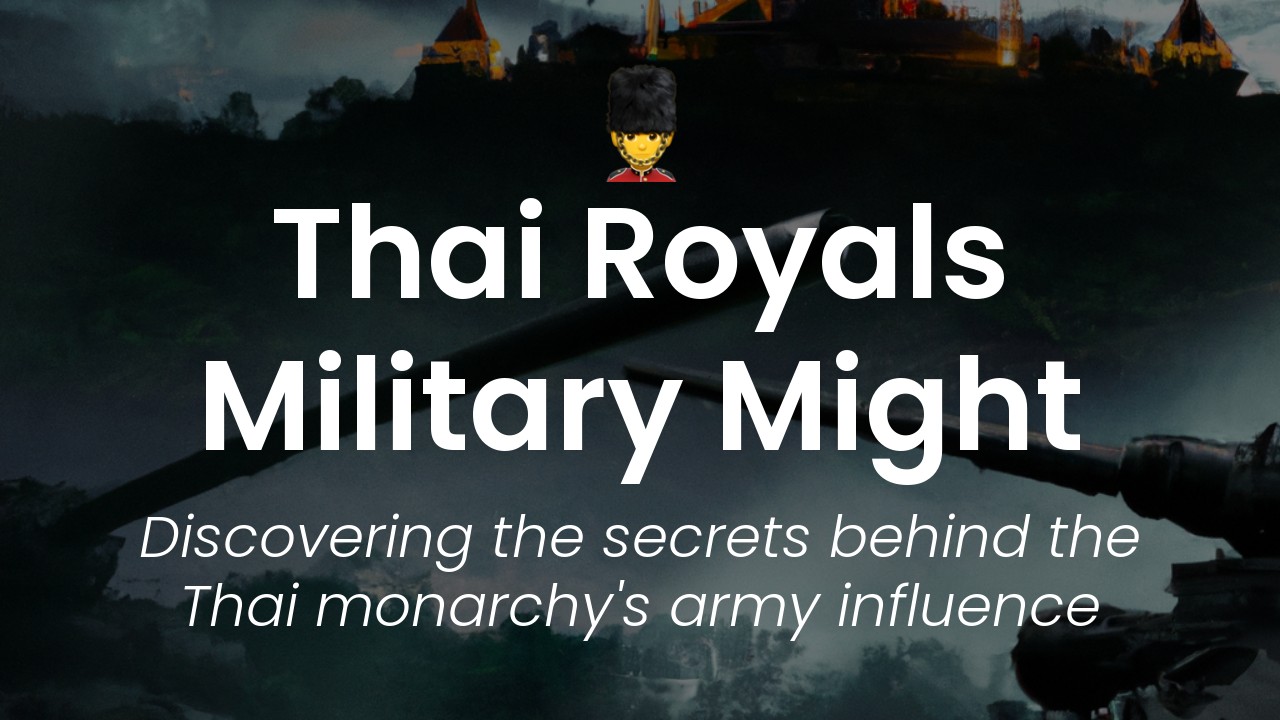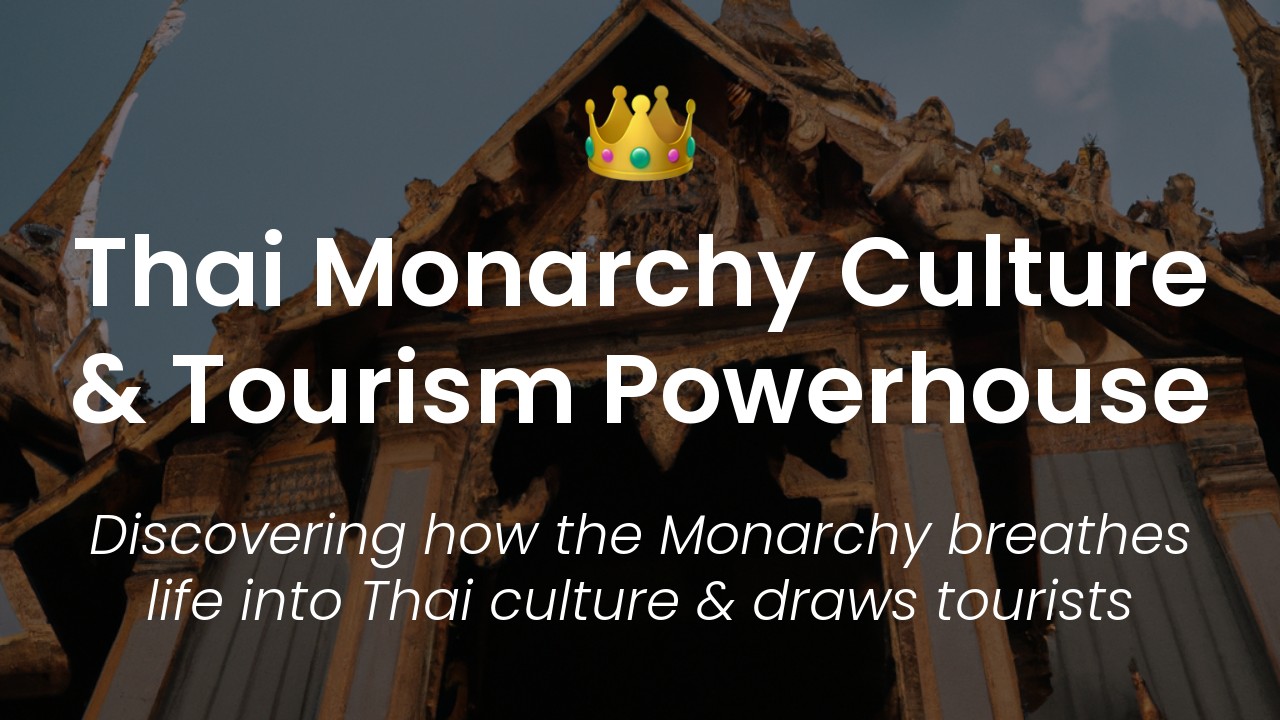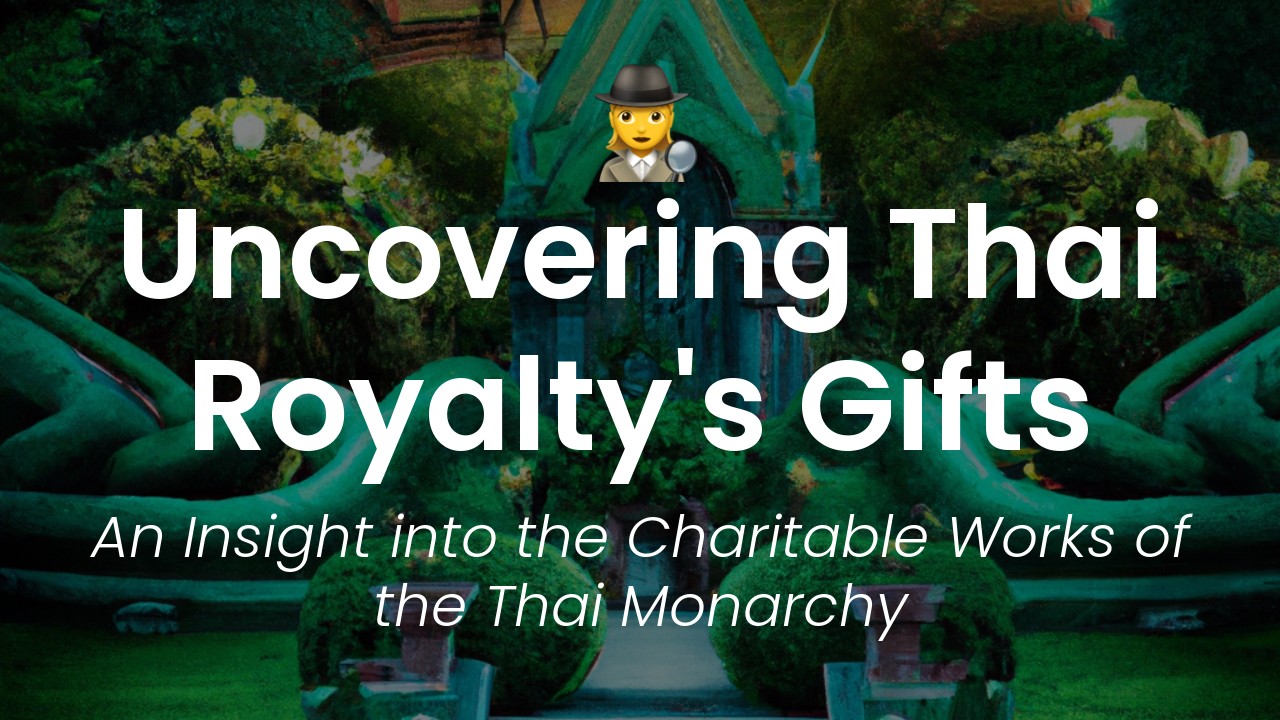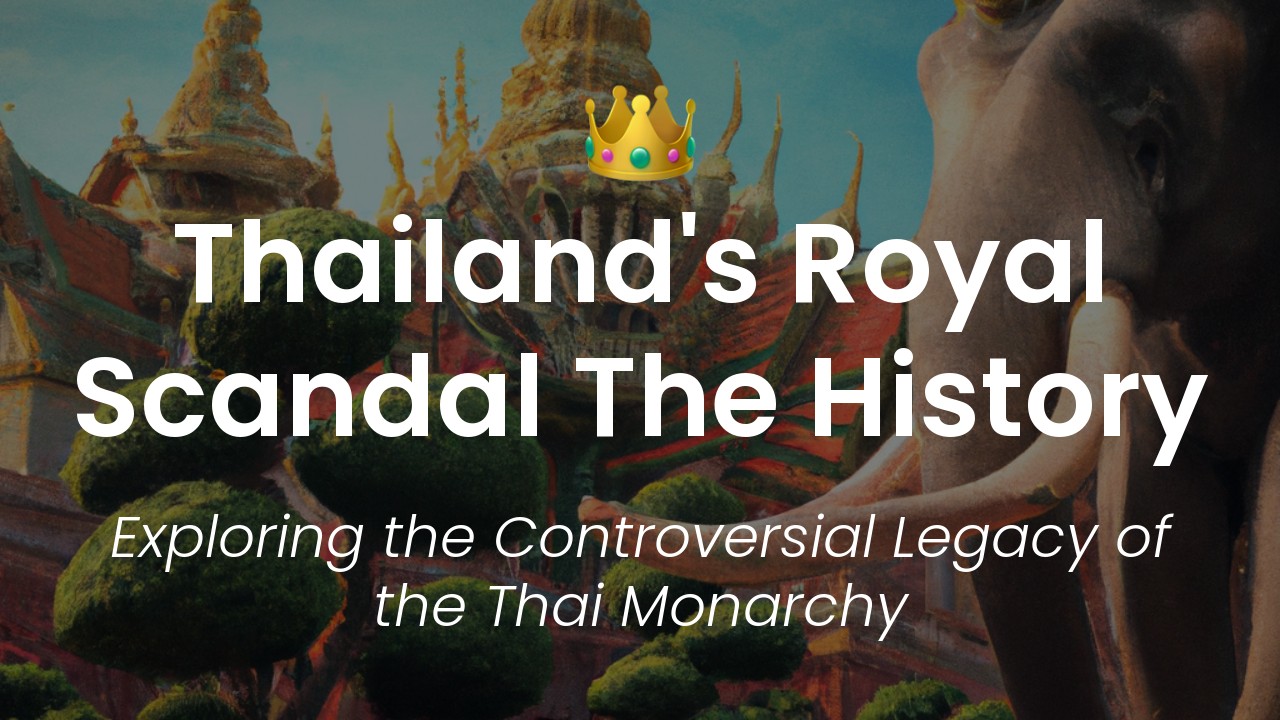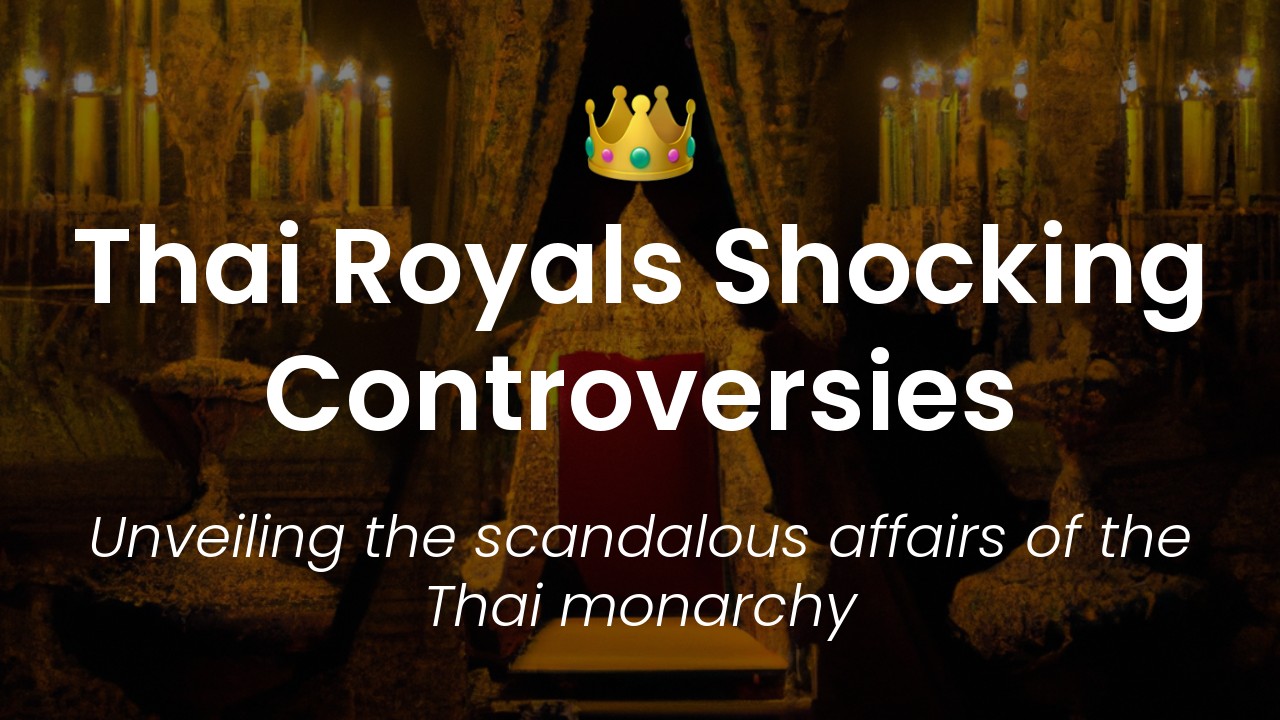As a Thai citizen, I have always been fascinated by the royal family and their influence in my country's history and culture. However, as I delved deeper into their reign, I realized that their power stretched beyond just their ceremonial duties and cultural significance. The Thai royal family has a strong military power that is often hidden from the public eye.
In this article, I aim to reveal the inner workings of the Thai royal family's military power. My research has uncovered some surprising facts about the royal family's role in Thailand's military operations. From controlling strategic positions to appointing key military leaders, the royal family has a significant impact on the country's military affairs.
Through this article, I hope to shed light on the little-known aspect of the royal family's influence in Thailand and its effect on the country's political landscape. I also hope to provide insights into the reasons why the Thai monarchy has held such a powerful position in the country for centuries. So, buckle up and join me on this journey as we uncover the secrets of the Thai royal family's military power.
History of Thai monarchy's military ties
The Thai monarchy's connection to the military goes back centuries. The King has traditionally been seen as the defender of the nation, and the military has been a crucial instrument in protecting the country's sovereignty. However, the relationship between the Royal Family and the military has not always been a smooth one. There have been periods of conflict and reconciliation, and the balance of power between the two has shifted over time.
During the absolute monarchy period, the monarchy had direct control over the military. The King was the commander-in-chief, and the military was essentially an extension of the Royal Palace. However, with the introduction of constitutional monarchy in 1932, the military began to assert greater independence and influence.
Role of the King in military affairs
Despite the reduced direct control over the military, the Thai King remains an important figure in military affairs. The King is still the commander-in-chief, and his commands are to be followed without question. The King also has the power to make military appointments and promotions, although this power is often exercised through proxies.
In addition to this formal power, the King also wields considerable informal influence over the military. This influence comes from the reverence and respect that the military has for the Royal Family. The King's public appearances at military events and his speeches praising the bravery and loyalty of the military serve to reinforce this influence.
Power and influence of Crown Prince
The Crown Prince is another important figure in the Thai Royal Family's military power structure. The Crown Prince is the heir to the throne and also holds the rank of general. The Crown Prince has played a significant role in military affairs throughout Thai history, and his influence has grown in recent years.
One reason for the Crown Prince's increased influence is the deteriorating health of King Bhumibol Adulyadej, who has been on the throne since 1946. As the future King, the Crown Prince has taken on more responsibilities and has been making more public appearances. This increased visibility has strengthened his connections to the military, and many see him as the likely successor to the King in military affairs.
Military factions within the royal family
It is important to note that not all members of the Royal Family have the same level of influence over the military. There are factions within the royal family, and some members are seen as more supportive of the military than others. The most prominent faction is the "Bangkok elite," which includes the King, Queen, and Crown Prince. This faction is seen as being generally more supportive of the military's role in Thai society.
Other factions are seen as more critical of the military and its influence. In particular, some members of the Royal Family who are more aligned with the democracy movement see the military as a threat to democratic values and institutions.
Recent changes in military leadership
The Thai military underwent a major transition in 2014, when a military coup overthrew the democratically elected government of Prime Minister Yingluck Shinawatra. The coup was led by General Prayuth Chan-ocha, who subsequently became the head of the military junta that ruled Thailand for the next five years.
During this period of military rule, the Crown Prince's influence over the military was somewhat limited. However, with the return to civilian rule in 2019, the Crown Prince's influence has increased once again. The military leadership has also undergone significant changes, with General Prayuth stepping down as head of the junta but remaining as Prime Minister.
Impact of military power on Thai politics
The military's role in Thai politics has been a controversial topic for decades. The military has been involved in numerous coups and has played a significant behind-the-scenes role in shaping government policy. Critics argue that the military's influence undermines democratic institutions and freedoms.
However, supporters of the military counter that the military is necessary to maintain stability and defend the country against external threats. They point to the military's successes in suppressing communist and separatist movements in the past as evidence of its effectiveness.
Future of Thai monarchy's military influence
As Thailand moves into an uncertain future, the role of the monarchy in military affairs is likely to remain a significant factor. With the Crown Prince's increasing influence over the military and an aging King, there may be more changes in the balance of power within the Royal Family. The military's role in Thai politics is also likely to be a continuing source of contention and debate.
Despite the challenges it faces, the Thai monarchy's connection to the military remains strong. The King and Crown Prince are both highly respected figures in the military, and their influence is likely to continue for years to come. Whether this influence is a force for stability or a threat to democracy remains an open question that will continue to be debated in the years ahead.

